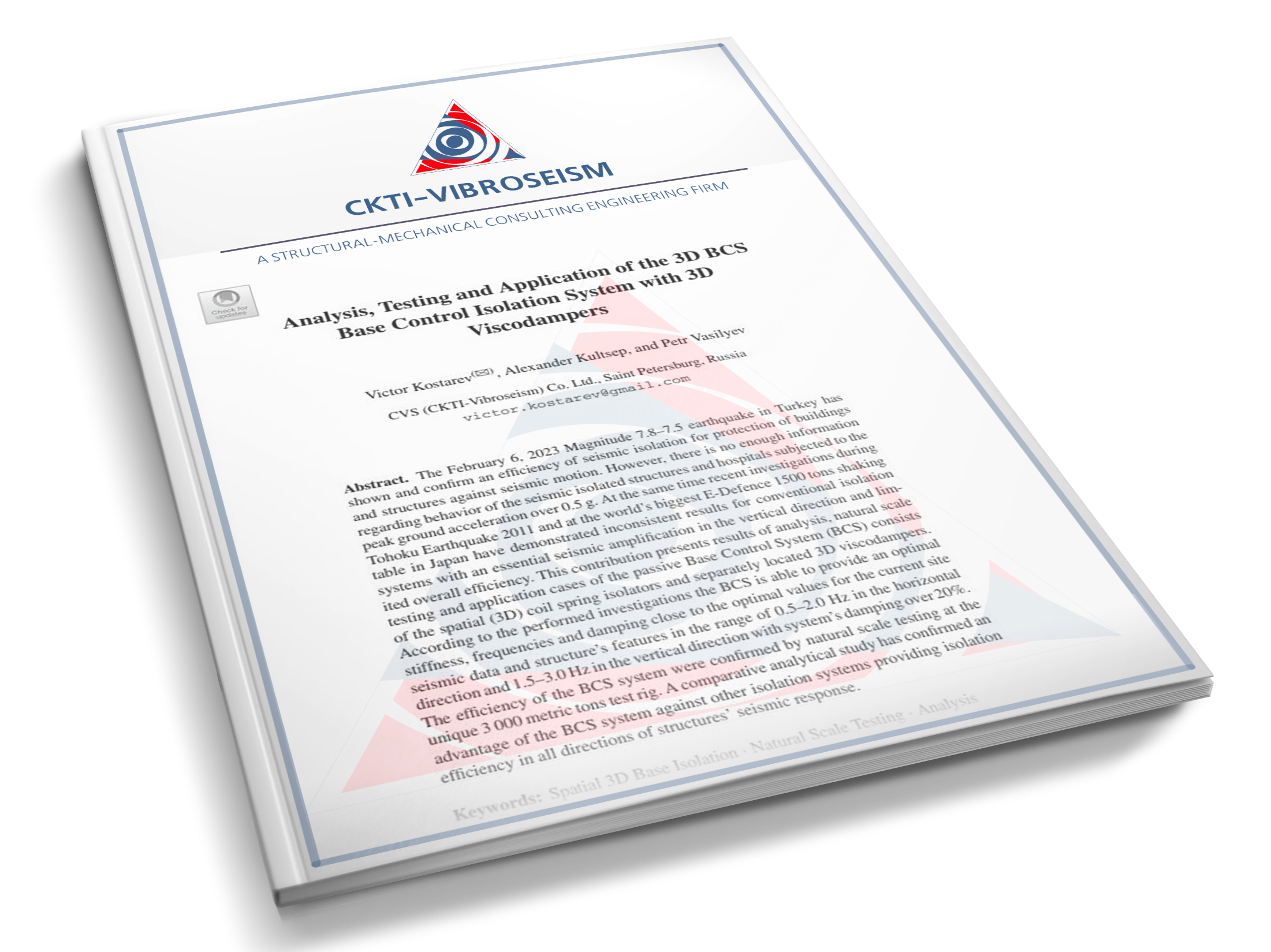Analysis, Testing and Application of the 3D BCS Base Control Isolation System with 3D Viscodampers
18th World Conference on Seismic Isolation

- Автор: Костарев В.В. [Viktor V. Kostarev], Кульцеп А.В. [Alexander V. Kultsep], Васильев П.С. [Peter S. Vasilyev]
- Редактор: English
- Страницы: 12
- ISBN: 978-3-031-66888-3
- №: 59
- Библиотека: Conference Papers
- Год: 2024
- Файл: 18WCSI_Kostarev
Просмотры: 2040
Abstract. The February 6, 2023 Magnitude 7.8–7.5 earthquake in Turkey has shown and confirm an efficiency of seismic isolation for protection of buildings and structures against seismic motion. However, there is no enough information regarding behavior of the seismic isolated structures and hospitals subjected to the peak ground acceleration over 0.5 g. At the same time recent investigations during Tohoku Earthquake 2011 and at the world’s biggest E-Defence 1500 tons shaking table in Japan have demonstrated inconsistent results for conventional isolation systems with an essential seismic amplification in the vertical direction and limited overall efficiency. This contribution presents results of analysis, natural scale testing and application cases of the passive Base Control System (BCS) consists of the spatial (3D) coil spring isolators and separately located 3D viscodampers. According to the performed investigations the BCS is able to provide an optimal stiffness, frequencies and damping close to the optimal values for the current site seismic data and structure’s features in the range of 0.5–2.0 Hz in the horizontal direction and 1.5–3.0 Hz in the vertical directionwith system’s damping over 20%. The efficiency of the BCS system were confirmed by natural scale testing at the unique 3 000 metric tons test rig. A comparative analytical study has confirmed an advantage of the BCS system against other isolation systems providing isolation efficiency in all directions of structures’ seismic response.
 ООО «ЦКТИ-Вибросейсм»
ООО «ЦКТИ-Вибросейсм» 
